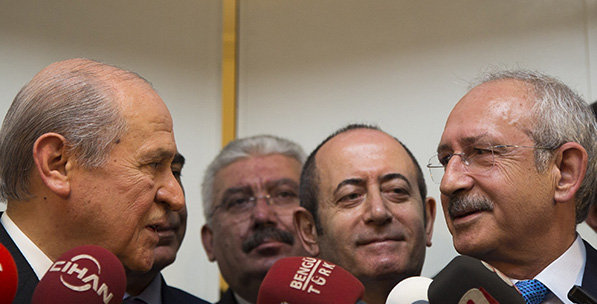Turkey is once again braced for a milestone electoral contest that promises to be vibrant and decisive concerning the political configuration of the next decade. On Aug. 10, the Turkish electorate will go to the polls to elect the first-ever popularly elected president in republican history. This is clearly a crucial episode as it epitomizes the inception of a systemic transition into a mode of politics in which a proactive and politically-strong president will manage the executive alongside a democratically elected government. Given the critical importance of these elections to determine the future of Turkey’s political landscape as well as the tone of general elections that will follow, it would not be surprising to observe an extremely tense political contention. The 40-days countdown to presidential elections is likely to proceed in a milieu characterized by discursive and personal attacks and counterattacks, especially in view of the potential nomination of Prime Minister Tayyip Erdoğan as the candidate of incumbent AK Party.
Erdoğan is a charismatic, ambitious and demanding politician who worked restlessly with his team over the course of the last decade for the advancement of Turkey’s political and economic transformation. Politically, he has been a crucial actor backing the agenda of democratic consolidation through normalization of civil-military relations, progress of the “resolution process” regarding the Kurdish issue and completion of many structural reforms in the context of EU accession. Despite blatant attacks by his adversaries, different sectors of society perceived Erdoğan as an ensuring figure combating bureaucratic tutelage, militant secularism, ethnic segregation and endemic corruption.
Internationally, he was instrumental in transforming Turkish foreign policy toward increased engagement with regional and global actors with a new-found national confidence. Economically, he was a critical political actor supporting the institutional capacity development of macro-level institutions that became vital in providing a robust governance framework that saved the country from recurrent financial crises. Therefore, when the legal reforms leading to a popularly-elected president were made, it was crystal clear that Erdoğan would be the obvious candidate for the post.
More importantly, Erdoğan perceives the decision to move from the Office of Prime Ministry to the Presidency more as a “responsibility” to complete his project of transforming Turkey into a major regional and global player than a “right” earned after a decade of political struggles. The revolutionary draft law for the “prevention of terror and strengthening social cohesion” that came to the parliamentary agenda on the eve of the elections summarizes Erdoğan’s potential as the only credible political actor who could push forward difficult legal steps required by the resolution process. Therefore, it would not be surprising to witness a robust election campaign by Erdoğan as soon as he is nominated by his party on Aug. 1.
Interestingly enough, Erdogan will be up against a very unorthodox candidate in the form of Professor Ekmeleddin İhsanoğlu, the former Secretary General of the Organization of Islamic Cooperation. The decision by the Republican People’s Party (CHP) and Nationalist Movement Party (MHP) to nominate a former diplomat who comes from conservative and nationalist roots that have a strong bearing among the AK Party electorate might seem a clever move at first glance. However, this strategy of gathering anti-Erdoğan voters around a consensus candidate with no political track record might seriously backfire especially under the strain of Turkey’s profound transition problems that require strong leadership. Besides Erdoğan and İhsanoğlu, a third candidate might come from the People’s Democratic Party (HDP), claiming to represent the bulk of the Kurdish electorate; but they are not expected to realize an aggressive campaign.
Whatever happens in the presidential elections and the general elections that w
In this article
- Domestic Policy
- Opinion
- Anti-Erdoğanizm
- Elections
- European Union (EU)
- Global Actors | Local Actors
- Islam
- Islamic
- Kurdish Community
- Kurdish Question
- Normalization
- Presidential Campaign
- Prime Minister
- Recep Tayyip Erdoğan
- The President of the Republic of Türkiye
- Turkish Economy
- Turkish Foreign Policy
- Turkish President
- Türkiye's Foreign Policy
- Türkiye's Justice and Development Party | AK Party (AK Parti)
- Türkiye's Peoples' Democratic Party (HDP)
- Türkiye's Republican People's Party (CHP)
- Türkiye’s Nationalist Movement Party (MHP)
